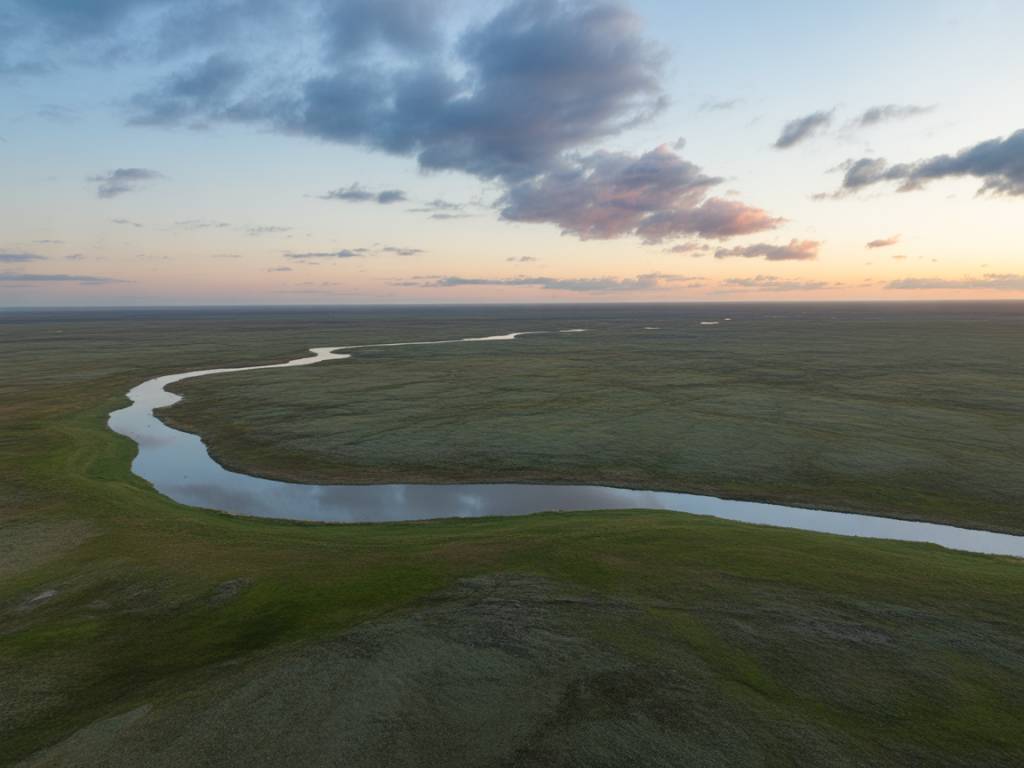The Role of Citizen Science in Biodiversity Conservation
Citizen science—public participation in scientific research—has emerged as a powerful tool in environmental monitoring and biodiversity conservation. As climate change accelerates and ecosystems continue to shift, the demand for large-scale, long-term biodiversity data becomes urgent. Traditional scientific approaches, often constrained by limited funding and staffing, can greatly benefit from the supplementary power of engaged citizens observing and documenting their natural surroundings.
By leveraging citizen science initiatives, researchers can gather more granular, geographically diverse, and temporally extensive datasets. This is particularly valuable for monitoring changes in biodiversity, tracking the spread of invasive species, and assessing the impacts of climate change on native flora and fauna.
Why Monitoring Biodiversity Matters in a Changing Climate
Biodiversity forms the foundation of ecosystem services—clean air, water purification, pollination, and climate regulation—that humans rely on for survival. Climate change threatens biodiversity in numerous ways, including habitat loss, shifts in species distribution, phenological mismatches, and increased vulnerability to diseases and pests.
Monitoring biodiversity is essential to understand:
- Which species are thriving, declining, or migrating due to environmental changes
- How ecosystems are adapting—or failing to adapt—to new climatic conditions
- What implications these changes have for conservation and policy planning
However, comprehensive monitoring requires frequent data collection across diverse landscapes over extended periods. This is where citizen science becomes a vital complement to traditional ecological research.
How Citizen Science Works in Biodiversity Monitoring
Citizen science projects typically involve volunteers recording observations of plants, animals, and ecological phenomena through structured platforms or mobile applications. These platforms often provide guidelines, training materials, and standardized protocols to ensure data reliability. Notable examples include:
- iNaturalist: A global platform that allows users to submit geo-tagged photos of flora and fauna, with species identification verified by the community and experts.
- eBird: Operated by The Cornell Lab of Ornithology, this platform gathers millions of bird observations around the world, creating valuable datasets for migration and population studies.
- Project BudBurst: Focuses on plant phenology and engages citizens in tracking the timing of blooming and leafing events to detect seasonal shifts.
- Nature’s Notebook: A USA National Phenology Network initiative that enlists volunteers to collect standardized phenological data from plants and animals.
Each entry from a participant contributes to a broader pool of data analyzed by researchers to draw trends and model ecological responses under varying climate scenarios.
Benefits of Citizen Science for Climate-Related Biodiversity Research
Citizen science delivers several unique advantages in the context of climate-biodiversity interactions:
- Scalability: Hundreds or thousands of volunteers can gather vast amounts of data simultaneously, covering extensive geographic areas that would otherwise be unreachable by researchers alone.
- Temporal Depth: Long-term monitoring becomes feasible as citizen scientists continue contributing observations over months and years, creating longitudinal datasets essential for detecting slow ecological responses.
- Public Engagement: Participation increases environmental awareness, fostering a culture of stewardship and direct involvement in conservation efforts.
- Cost Efficiency: Citizen science is a cost-effective supplement to resource-intensive field surveys, allowing research institutions to allocate professional efforts more strategically.
The accumulated data not only informs scientific models but also supports evidence-based policy development for biodiversity conservation under climate stress.
Challenges and Considerations
While citizen science presents many opportunities, certain challenges must be addressed to ensure its scientific rigor and societal impact:
- Data Quality: Variations in species identification skills and sampling effort can affect data accuracy. Many platforms incorporate validation systems, expert reviews, and AI-assisted identification to mitigate this issue.
- Sampling Bias: Volunteers may favor accessible or familiar locations, leading to skewed representation in space and time. Awareness campaigns and sampling guidelines help in distributing efforts more evenly.
- Digital Accessibility: Not all communities have equal access to technology or the internet, potentially limiting inclusivity. Providing offline tools or community-led training sessions can bridge this gap.
Despite these concerns, when well-designed and properly managed, citizen science projects can deliver high-quality data that match or exceed the standards of professional research in certain contexts.
Case Studies Illustrating Impact
Several initiatives around the world demonstrate the transformative potential of citizen science in monitoring biodiversity amid climate change. For example:
- UK Butterfly Monitoring Scheme (UKBMS): Citizens have collected butterfly data for over four decades, revealing population declines tied to habitat degradation and climate fluctuations. Insights from this program have influenced policy and conservation strategies in the UK.
- USA National Phenology Network: Thousands of volunteers tracking leafing and blooming cycles have contributed critical data showing earlier springs and altered growing seasons, aiding climate models and ecological forecasting.
- ClimateWatch in Australia: Operated by Earthwatch, this initiative asks volunteers to monitor species sensitive to climate conditions. The data helps pinpoint shifts in species behavior and phenology across different biomes.
These projects exemplify how citizen-powered data can fill critical knowledge gaps and enable adaptive management of natural resources in a climate-stressed world.
Future Prospects and Integration with Technology
As digital tools become more sophisticated, the link between citizen science and biodiversity data continues to strengthen. Integration with technologies such as machine learning, remote sensing, and geographic information systems (GIS) enhances the accuracy and utility of public observations.
Additionally, open-access data policies ensure that citizen-contributed observations are available for researchers, conservation planners, and policymakers worldwide. This broad accessibility fosters collaboration, innovation, and more equitable participation in knowledge generation.
Looking forward, incorporating citizen science into national biodiversity monitoring programs can provide governments with continuous, up-to-date, and cost-effective data streams. This is particularly pertinent for informing adaptive climate policies aligned with international commitments like the Convention on Biological Diversity (CBD) and the Sustainable Development Goals (SDGs).
Moreover, as climate change becomes more visible in everyday life, engaging citizens in documenting those changes deepens public investment in sustainability. Citizen science stands not only as a research method but as a social bridge connecting people to nature and encouraging a more informed, climate-resilient society.

